Folk Music: A Timeless Genre
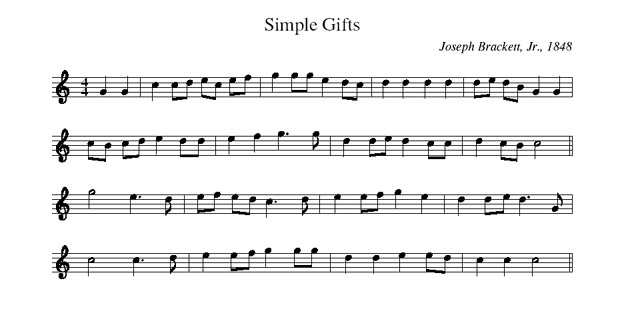
They’re the songs that you know without consciously recognizing that you know them. They lay dormant at the back of your mind until needed, when they appear on your tongue with tunes and lyrics remembered to perfection. “Rock-a-Bye Baby”, “Frère Jacques”, “London Bridge is Falling Down”, “Ring Around the Rosie”, “Home on the Range”, “Kumbaya”: this list barely scratches the surface of the endless folk songs around the world. Even so, it’s likely that at least one of these titles is familiar, if only as a distant childhood memory.
In a world dominated by Top 40 pop music, is there still a place for traditional music? It’s easy to wonder if folk music is in danger of fading out of the modern memory entirely, replaced by more modern tunes. Countries have gone to great lengths to write down and preserve their folksongs; is this because traditional music is doomed to exist only within these scores as a historical testament to a dead genre?
The idea of listening to a song like “Twinkle Twinkle Little Star” on the radio may be laughable, but this doesn’t mean that traditional music has no place in society. Folk songs have defined cultures throughout history and continue to do so. More importantly, they have withstood the test of time; there is no reason to assume that they will die out now.
What Makes a Folk Song?
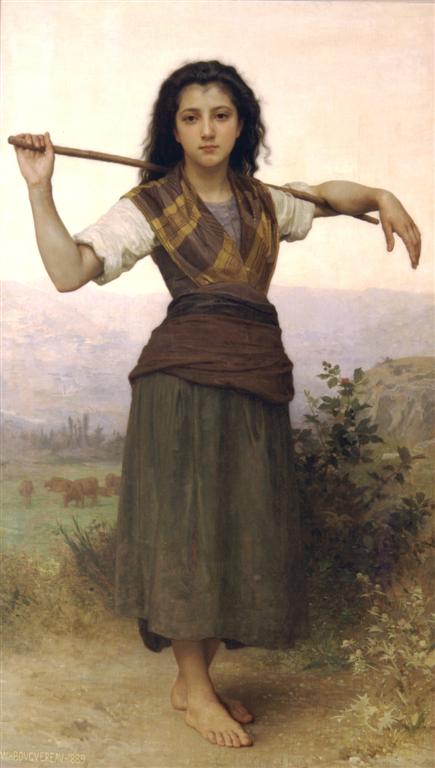
For such a simple question, defining a folk song is incredibly complicated. Not only do definitions vary, but they have evolved over time. Folk music used to be synonymous with traditional music, but the term now covers a far wider selection of music: after all, folk music festivals today don’t tend to have artists singing songs like “Yankee Doodle”. 1 As a result, the concept of “folk music” is a bit of a grey area. However, in this article, folk music and traditional music will be used as interchangeable terms.
In 1955, the International Folk Music Council decided on several characteristics that make a folk song: a folk song was a song that had been passed down orally, that “evolved within a community uninfluenced by ‘popular’ and ‘art’ music”, and that was “absorbed… into the unwritten living tradition of a community”. 2
Another definition, by Samuel Forcucci, goes into even more detail:
“1. Folk songs represent the musical expressions of the common people.
2. These songs are not composed in that they are not the works of skilled, tutored musicians. It is more accurate to say that they have been created rather than composed.
3. These songs are ordinarily the product of an unknown person or group of persons. The credits often read: Anonymous, American Folk Song, Traditional.
4. The words of lyrics of folk songs are usually colloquial in nature to reflect the speech patterns and expressions of a particular people or region.
5. These songs are highly singable, primarily because they were first presented with the singing voice rather than having been written down in musical notation beforehand.
6. Folk songs are simply structured, both musically and verbally. It is their naiveté that gives them their charm.
7. These songs can be effectively performed without instrumental accompaniment. When they are accompanied, a less formal instrument is considered appropriate”. 3
While each definition is a bit different, there are some common elements. First of all, a folk song has to be simple. A community at large won’t be made up entirely of skilled singers. For a song to become part of a culture, it has to be singable by the average person. It also has to be simple enough to be easily remembered if it relies on oral transmission (at least initially, since folk songs are usually published eventually). Secondly, if it’s passed down orally, it’s likely old enough to have had the chance to prove its timelessness and become part of a community. Any song can become part of a community briefly, but being passed down through generations is what makes the difference between “My Bonnie Lies Over the Ocean” and Taylor Swift’s “Shake it Off”. Will Taylor Swift’s music still be sung in hundreds of years? Probably not.
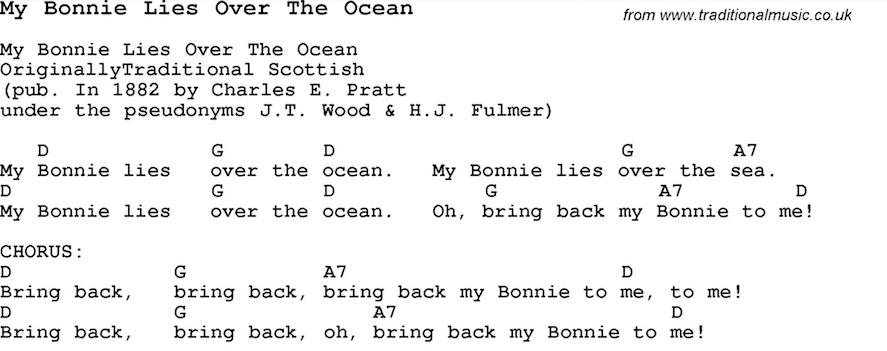
Building an Identity
Historically, folk music has played a significant role in defining nations. It’s a pattern that occurs again and again; a new nation is formed, and a unique national sound is developed. Arguably, music even plays a role in helping to make nations.
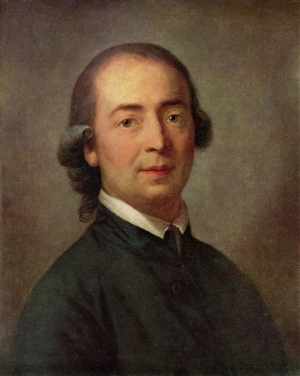
Before Germany was unified, those who wanted a single German nation were aleady working towards unity through music. 4 Their concern with music is completely justifiable in hindsight. To become a single country, the separate German states needed more in common than just a shared language; creating a mutual folk culture through music became a necessity.
To understand why, it’s important to look beyond just sound and look at the subliminal messages that music can send. A collective folk music can help to create a unified way of thinking, influencing morals, values, and even a sense of national pride. 5 The German people could come to view themselves in a certain way, and see themselves reflected by the people in other German states. If their folk music was similar – both musically and thematically – it stood to reason that they themselves also shared many similarities. Looking at it that way, becoming a single German nation made a lot of sense.
Defining a national sound isn’t without its dangers. Another historical pattern with folk music is its use by totalitarian regimes as propaganda. If music can change the way people think, then that means that music holds an incredible power that can be harnessed by those who know how to use it. Nazi Germany, communist China, and Soviet Russia are all examples of dictatorships that used music to influence the mentality of the people. For example, Soviet Russia changed the text of existing folk melodies – a common technique in dictatorships – so that the “happy, modern lives” of the Russian peasants were praised. 6 After all, if the peasants sang about how happy they were, it was quite possible that they would come to believe it.
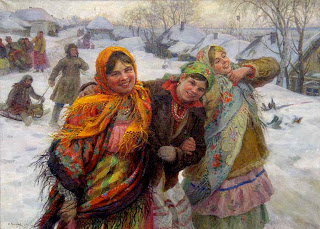
Again and again, folk music has been used for political reasons with incredible results. In fact, it is such a powerful political tool that it isn’t just a historical phenomenon; it’s still used! The Palestinian resistance uses folk music as a form of peaceful protest:
“Palestinians dwelling in different geographic zones can often only unite and reveal sentiments through communicative media like music. The songs provide a forum for subaltern/nationalist ideologies and promote powerful feelings ‘of national identity both within and between communities in ’48 (Israel), in the occupied West Bank and Gaza Strip (al-bila-d), and in exile (al-ghu-rba) ( Jordan, Syria, Lebanon)’ (p. 39). But beyond this, songs frequently have a greater purpose, in that they actually generate sentiments, shape national identities, and provide a space for signifying power structures. As the title suggests, the voice, the song, is the weapon, not just a mirror, but the tool of action or defense.” 7
It’s easy to take the musically simple folksongs worldwide for granted, but its important to remember that this music, while often disregarded, has incredible power; it can literally change the world.
American Folk Music
Folksong doesn’t have to have a direct political agenda to play an important role within a nation.
As the three largest countries in the world, Russia, Canada, and the United States of America include many diverse pockets of people. Folksong is particularly important in countries with such an eclectic mix of citizens so that everyone can feel a connection to their country, regardless of physical distance and cultural diversity.
Despite this, American folksong took a very long time to develop. Native Americans had their own folksong, but the colonists “had little to no folk tradition of their own”, possibly because they had very little history of their own; as a “new” country, they had to make some history of their own before they could write about it. 8 As a result, a clear American style of folk music didn’t even begin to develop until the late 1800s, and some would argue that it wasn’t fully developed until the 1920s! 9
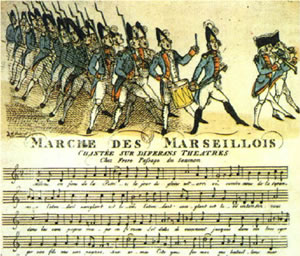
Having an independent history is necessary for the development of folksong. Not only are many folksongs based on history (think “London Bridge is Falling Down” or “I’ve Been Working on the Railroad”), but it’s through historical events that a people are defined. Are they survivors? Are they warriors? A great example of using history combined with music to define a nation is the French national anthem. Even someone with no musical knowledge can likely tell that it is militaristic, if only from the fact that it sounds like amazing marching music. Anyone who speaks French or reads a translation will only have this confirmed; the text literally says “march!”. In addition, there are some blatantly gruesome and violent sections, including “let impure blood water our fields”. Suddenly, the listener is transported back to the French Revolution and gets a taste of the essence of the French people; this is their chosen anthem, after all. It reveals both what the French had to lose and how far the French people were willing to go for their country and its freedom.
What can be learned about Americans through their folk music? Again, it’s a bit complicated and could probably fill an entire article on its own. However, the brief version is said very well by Marion Bauer:
“‘At heart we are a nation of pioneers, and that spirit of fearlessness, bravado, and energy, the vitally essential spark of Americanism, is gradually finding its way into our music.’ This folk tradition, embodying the American idiom of ‘fearlessness, bravado and energy’, had emerged, as Bauer states, ‘in the English folk-tunes of Kentucky and Tennessee, the Lumber-jack songs of Maine, the cowboy songs of the plains, [and] the mining camps songs of ’49.'” 10
From this quote, a unifying theme in American music – regardless of style or origin – is clear, as well as its origin. Of course bravery would play a role in American folksong; the early colonists were explorers and settlers brave enough to leave their homes for the unknown.
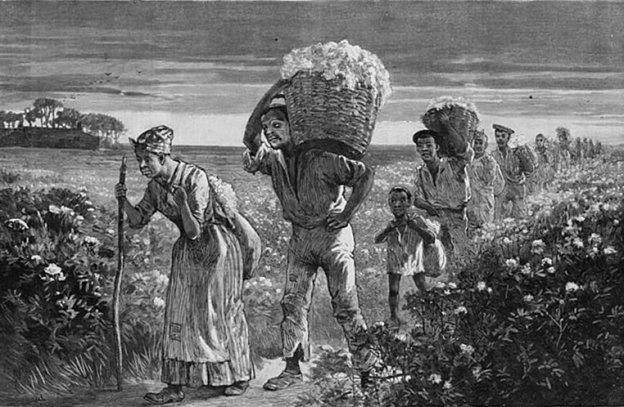
European immigrants weren’t the only people to influence American folksong, of course. A great part of American folksong is influenced by African Americans. Some of these influences are more positive than others. On one hand, “distinctly African rhythms” are present in American traditional music: rhythms that are “beyond comparison with any other music in the world”. 11 From African Americans, there is a huge repertoire of “children’s songs, work songs, lullabies, and songs for leisure time, in addition to the great numbers of religion-inspired spirituals”, each with its own style. 12 On a less positive note, minstrel songs and blackface also play a role in American song. 13 While the music from that era is definitive of a time in history and the style itself is not an affront to the ear, its unpleasant historical origin will always taint it to some degree.
Folk music is not just music meant for the past. A notable folk music revival came with composer Aaron Copland in the 1900s. He set two books full of arrangements of American folksongs in addition to including them in larger works such as ballets and operas. His use of folksongs were hugely popular, especially because of the rising nationalism that came after two world wars. 14 His settings of American folk music in his two editions of Old American Songs are still popular today.
Through American folk music – particularly a sub-genre called the folk ballad which focuses on telling a tale through many verses, used by most of the groups mentioned in Marion Bauer’s above quote – “stories from the history of early Americans, that may not have otherwise been written down, have been preserved”. 15 Not only has it recorded historical events, but it also shows major shifts in the psyche of Americans. As discussed, folk music reflects the people within a society, so it naturally changes as the society evolves; an example of this is the adoption of jazz in American folk music.
Folk music holds onto history and keeps it relevant, providing a nation with an identity. In this sense, folk music is irreplaceable.
Helen Creighton and Selectivity
While folk music reflects the identity of a group of people, it doesn’t always do it accurately.
At the same time that Copland was working on his Old American Songs, a woman named Helen Creighton was going to great lengths to record the folk music in the Canadian province of Nova Scotia. Creighton also preserved music that may have otherwise been lost, but that’s only the start of the effect she had on Nova Scotians; through her decisions on what music to preserve and promote, she ultimately created their culture.
Her original purpose in collecting folk music was not related to her modern legacy at all, but rather for a tourism promotion that called for “pirate songs”. 16 In the end, she found music that reflected the lives of women, black Nova Scotians, fishermen, and others. 17 She found common themes to try to bridge differences and create a single Nova Scotian people; for example, child ballads and superstition became prevalent parts of their heritage. 18 In other words, she was doing exactly what other countries had done, but within a province. She was shaping the Nova Scotian vision of self in an attempt at both provincial pride and unity of a people. However, she also used folk music very selectively to promote her own values:
“But Creighton was in fact someone who, in the 1930s, actively disliked many of the songs and ways of working Nova Scotians. Because she adhered firmly to the Child ballad tradition, she discounted many songs of Nova Scotian composition… All of these parts of the Creightonian approach to the Folk – organic social unity, idealizing relations between men and women, ethnicity, Britishness, magical thinking – congealed into an extremely conservative whole. There was a definite pattern to the way Creighton selected, and that pattern was consistent with her social position. The “Lady of the Legends” was an intelligent and gifted conservative who had a definite vision of the social order which subtly influenced everything she produced.” 19
Helen Creighton’s selectiveness teaches the importance of folksong once again. Perhaps it’s merely another form of propaganda, but it just goes to show that an identity can be chosen rather than just formed. It can be chosen by one person initially but, if it’s adopted by enough people, it can truly define them. It doesn’t necessarily have to be a completely accurate reflection of the people if it’s accepted by them.
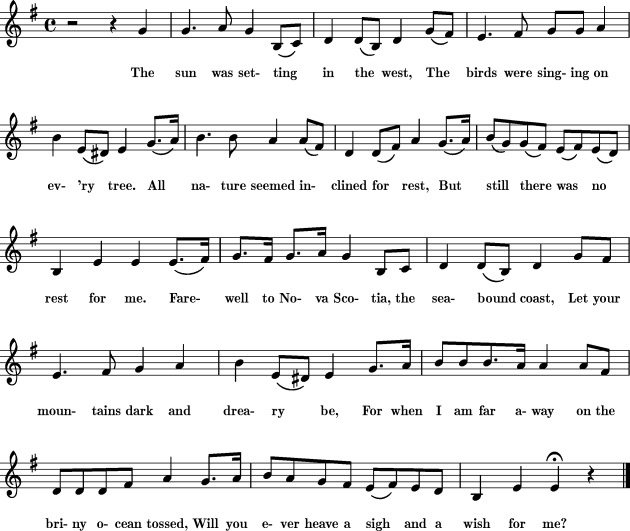
Why would people accept such a selective folk tradition?
There’s a possibility that they didn’t realize it was selective. However, whether they did or not, it was likely accepted because it allowed people of such diverse heritage to finally feel like a single entity. Folk music helped to give them a sense of belonging, whether or not it was an accurate representation of their original culture.
In the Classroom and Recital Hall
Traditional music creates cultural identities and influences politics, but it also plays less radical roles. Today, folk music is used by classical musicians (here, “classical” does not refer to the time period in music history, but rather the more widespread definition that refers to music that is not pop, jazz, folk, rock, or other more modern forms) in composition, performance, and the classroom.
Composers still use folksong within new, original works. In a song cycle – essentially a group of songs chosen by the composer to be performed as a set, often due to consistent themes, poets, or musical material – called Try Me, Good King by Libby Larsen, there are various traditional melodies embedded within the piano part. Each folksong relates thematically to the sung text of the work. As mentioned, Copland did the same in many of his most famous compositions. While folksong is quite simplistic on its own, it can enhance more complicated compositions by serving a dramatic or thematic purpose.
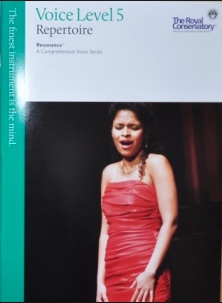
In fact, it’s the very simplicity of folk music that makes it such a valuable teaching tool. Folk music transcriptions tend to have very few directions for the performer. Most music will instruct the performer in dynamics (loudness or softness), tempo (speed), and interpretation. Since folk music tends to not have this, the music is completely at the mercy of the musician’s creativity (within reason). 20 If there are markings, they tend to be added later by an editor, which means that they can be used, but they don’t have to be. As a result, folk music doesn’t just teach people to play or sing notes; it teaches them how to be musicians. Copland’s Old American Songs are still sung by classical voice students, even at a university level, which goes to show that folksong is a useful educational tool at any skill level.
Students can be taught about their own heritage through folk music, but they aren’t limited to local songs. Folksongs from around the world are often part of the teaching repertoire, which helps to give students – often children – understanding of other cultures. 21 Folktales are often part of traditional music and can demonstrate the values and ideals of people around the world. By learning about other cultures, students can also become more empathetic, open, and imaginative.
Folk music is so important that it has become a significant part of Royal Conservatory of Music’s voice syllabus, used in many countries around the world including Canada and the United States. The syllabus has an entire category devoted to folksong for the first six grade levels out of a possible ten. For students taking exams at these levels, that means that they need to prepare one or two traditional songs. Even in the upper levels, some more difficult folksongs are on the list of acceptable repertoire. 22 Its prevalence only confirms the importance of the genre.
A Timeless Genre
From politics to teaching, traditional music plays a huge role in society. It can be used as a unifying force, a form of protest, propaganda, a teaching tool, and, perhaps most importantly, to express an identity. Traditional music often survives centuries, recording history as well as subtly influencing it.
All music is powerful, but folk music is rarely thought of that way. It’s an intimate genre not intended for huge concert halls or the radio, so it’s easy to overlook its value or even forget about its existence. However, it’s sewn into the fabric of each society, inseparable from cultural identity. It’s a genre that is often underestimated, which is what makes it so effective throughout history and today. It can change hearts and minds – and unite them – so it will always be useful politically (whether for good or for evil) as well as personally.
Will “Twinkle Twinkle Little Star” ever be a hit on the radio? Probably not. But will it still exist in hundreds of years?
Almost definitely.
Works Cited
- Pegg, Carole. “Folk music.” In Grove Music Online. Accessed December 10, 2015. Oxford Music Online ↩
- Pegg, Carole. ↩
- Jones, Andrew Morgan. “The Old American Songs and Aaron Copland’s Place in the American Folk Tradition.” Masters diss., University of Victoria, 2002. ↩
- Klotz, Sebastian. “Music and German National Identity.” Journal of the American Musicological Society 58.2 (summer 2005): 467-472, 497. ↩
- Klotz, Sebastian. ↩
- Pegg, Carole. ↩
- Urkevich, Lisa. “My Voice is My Weapon: Music, Nationalism, and the Poetics of the Palestinian Resistance.” Notes 72.1 (September 2015): 146-148. ↩
- Jones, Andrew Morgan. ↩
- Jones, Andrew Morgan. ↩
- Jones, Andrew Morgan. ↩
- Jones, Andrew Morgan. ↩
- Jones, Andrew Morgan. ↩
- Jones, Andrew Morgan. ↩
- Jones, Andrew Morgan. ↩
- Jones, Andrew Morgan. ↩
- McKay, Ian. “He is more picturesque in his oilskins: Helen Creighton (collector of Nova Scotian folk music) and the art of being Nova Scotian.” New Maritimes 12.1 (September/October 1993): 12-22. ↩
- McKay, Ian. ↩
- McKay, Ian. ↩
- McKay, Ian. ↩
- Reel, James. “3 Reasons to Teach Your Students Folk Music.” Strings 25.5 (December 2010): 35-36. ↩
- Reel, James. ↩
- “Voice Syllabus/2012 Edition.” RCM Music. 2012. https://examinations.rcmusic.ca/sites/default/files/files/S35_Voice%20Syllabus_2013%20online_final_SECURED.pdf. ↩
What do you think? Leave a comment.



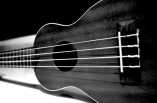




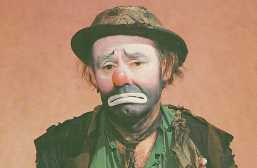


Really, really cool. So glad you finally got to post about music! Such a great topic and informative article.
I’m wondering what your thoughts are about bands like Mumford and Sons, bands that people say have a “folk” sound. Do you think that’s accurate?
I think that you can evoke a sound that is close to traditional folk music without technically being “folk” music. Again, it’s a bit of a grey area because there are so many different definitions of what can qualify as folk music. Based on the really long definition I have in the article, I would say that it isn’t technically folk, but it is part of the contemporary folk genre, which is slightly different (think folk festivals). Since their songs haven’t been widely absorbed into the overall culture of a group of people, I don’t think it can technically be considered folk music of the sort that I’m looking at in this article. However, I do think that their music has similar elements, and you can tell that it’s inspired by traditional music. I hope that answers your question!
Very nice overview on traditional folk songs and their parameters. I especially liked the quote from Lisa Urkevich, “My Voice is My Weapon: Music, Nationalism, and the Poetics of the Palestinian Resistance.”
Your article also invoke some songs for me as I was reading; for example, the “Happy Birthday” song and ” Little Boxes” by Malvina Reynolds as it was the opening song for the Showtime series Weeds.
Thanks
This is an interesting article in more ways than one. I love original folk. Some of the best writing to ever occur in my opinion.
Yes put me back in isolation so I can revert back to the music I grew up with!
Classic, great history of folk music!
I hear lots of people writing great songs, simply sung and played, with plenty of variety including social and political content, in clubs and singarounds, on the path MacColl, Lomax, Seeger and those like them envisioned more than half a century ago. But they won’t be heard by many because, with rare exceptions, record producers, promoters and broadcasters are only interested in music that doesn’t offend, criticize or provoke. That”s why the “folk” business is now dominated by bland singer-songwriters and slick bands, peddling sexed-up copies of authentic folk songs.
Unfortunately, this is quite true.
Joe Hill was murdered for his folk songs.
And “I Dreamed I Saw Joe Hill Last Night” was the melody Dylan used for “I Dreamed I Saw St. Augustine.” This was the start of Dylan’s late-60’s religious phase, of which John and Paul wrote – mockingly, in “Rocky Raccoon” (and yes, Dylan is Rocky) – “Only to find Gideon’s Bible.”
Thank you for putting all these together.
Love the way this turned out! Great work! I especially love that you pointed to the intimacy of the genre.
Thank you so much! (And thank you for your edits!)
Great article, well written.
The folk philosophy still lurks under the sheen and easy populism of pop music…
I love true, sincere music so much that I devour it and regurgitate it in my own way. The songs are mostly about me. I record them sometimes with a cassette, but more lately on the computer.
I am such a conservative old folkie, I can see no folk music in this current generation. All girl solo singers try to be like Kate Rusby and groups are after a sound particular to themselves, traditional songs, which used to be simple, are swamped with sound. Back in the 60’s/70’s there used to be a real enjoyment, now it’s just yankee whooping and hollering. Thank God John Kirkpatrick and the like are still hanging on !!! Rant over.
A reminder to everyeone: Acoustic does not mean folk, it has little to do with folk music in terms of substance.
Good call: Dylan told Monk, “Implay folk music.” Monk told Dylan, “We all play folk music.”
Until a new Stan Rogers comes along, there will be no true folk music
Wonderful piece.
Great work on this one! As a former viola player, I’m happy to see a music-related analysis. Also, I loved the history details in this.
I love the folk, old and bew.
If you think about rock music has been the real folk music of the baby boomer generation in that folk is an indigenous form that finds its topic in the concerns of the day, if you look at the evolution of rock over the past 60 years you can pretty much trace the concerns of a couple of generations in what the songwriters of the day wrote about. it was average people with little or no academic background in music theory playing what they felt, it was made popular because it resonated with the people of the day, these songs too were passed on. every kid
Bob Dylan introduced politics into folk music.
Bob would tell you that Leadbelly beat him to it and I will tell you that perhaps no other 21-year old could have written “Only a Pawn in Their Game.” Dylan is one for the ages.
The American Folk Music scenario so unique–but let’s face it, the repertoire is static, and has been for a long, long time.
This is not the case in other folk traditions around the world, where the styles and forms continuously evolve.
Great article of the rise of what we now call the Folk Music movement!
Thanks for sharing friend.
I certainly see the many times context of Folk music is misunderstood by the general audience, simply for the fact that it is often associated with country or underground roots. If others understood how laden we are with the history of Folk songs and other historical pieces, they might see how much reflects so much of our cultures.
There are some respectable musicians in this genre.
Just wanted to say thank you a lot for this history lesson, it’s nice to know more about folk music and you’ve explained it very well.
This helped loads with my school project! Thanks so much!
Thanks to the internet This music can be loved by future generations it has really inspired me!
Excuse me, but the internet has killed the music industry. Records shops are gone There’s no pay to play gigs There’s nowhere to record And if you are “lucky’ and get “discovered” you’ll get saddled into a 360 degree entertainment deal where you will have to flog perfume and liquor for your living wage as you are given no one from the label to help cultivate the musical product that you want to create because that musical product no longer has any value.
No, the recording industry first screwed the artists, now the internet’s presence is finishing ’em off. Remember, it was the cynical recording industry that created – in the pre-British invasion, when Elvis was in the army – an “artist,” Chubby Checker, whose name was even a copy of Fats Domino (Chubby is to Fats as Checker is to Domino), the man they hoped to copy. Instead of looking for real talent, record executives (read, “parasites”), they concluded that since Domino was selling records, that the easiest thing to do was to find a large black male singer. A generation before, Leadbelly was ignored by the industry, and only the great John Hammond – who discovered Bob Dylan (unfortunately after being parasitized by Albert Grossman) – recognized the greatness of black talent such as Billie Holliday, Count Basie, and Robert Johnson. Dr. Dre had a funny video about an obese record executive eating a sandwich, sending a Little Person to return with “talent” who looked remotely like maybe Snoop Dogg (well, he had French braids, anyways).
Jamaican kids on the other hand, could barely receive via radio New Orleans R ‘n’ B – most notably Fats Domino – and their alchemy turned it into ska, then rocksteady, and finally reggae.
If the extortionists can’t kill music, the Internet won’t either. Musicians tour to earn a living. Record companies give them little for their recorded work.
At one point, Elvis’ manager, Colonel Tom Parker, made 75 cents of every dollar Elvis made. Dylan was getting worked by Grossman, too, and when Dylan walked from Columbia’s horrible deal with him, they threatened to release – and then did – an album of horrible outtakes meant to ruin him. It failed they begged him back a few years later with terms he dictated. The talentless will always need the talented.
Do you think there is any solution to this problem or are we just out of luck?
I particularly like your take on folk music and “Building an Identity”. Generally, the popularity of mainstream pop music overshadows how folk music exist in our daily lives without us noticing it, as you have rightfully pointed out. Folk music has also been instrumental in writing revisionist history of various localities through interdisciplinary methods, such as oral history. This was an enjoyable read.
Really in-depth! I like that you’ve made the point of it being timeless due to its history and identity. In relation to modern pop music, folk music certainly stands the test of time.
I learned a ton from this article! It really made me think about folk songs in a new way (although I’ll always love my pop songs, hehe).
Refreshing article, Music isn’t a very lively topic on the site and love seeing it!
“Car Car” by Woody Guthrie
Trees and houses walk along.
My personal favourite is “Scarborough fair”.
This was a wonderful article. I think ‘timeless’ is the perfect word to describe folk music.
Awesome information, but I would suggest a title of your post that is a little more catchy.
Simple ideas can be the most adaptable and profound depending on the setting. Thanks for elevating the value of folk music in this great article!
I like folk songs. I always feel that the folk songs can help us to learn more about the past.
Great article! I think there is much to be said for the desire for folk music to resurge in popular culture. As a child of the 60s and 70s,I recall how folk music, and folk music patterns, carried the hopes and dreams of an entire generation. Now I’m seeing some musicians who are once again picking up the folk music pattern and using the lyrics and form to address issues of importance, and even more significantly, to use the lyrics to empower, to dream, to heal, and to encourage. Shawn Galloway is one such musical artist; Mark Stanton Welch is another. I would love to see more focus on the inherent power of folk music to once again connect with the spirit of people. They are more than just songs of a culture or of a people…they are, in my view, songs of the heart and of the endurability of the human spirit.
Absolutely love this! As someone who is constantly listening to various folk playlists on Spotify, learning about the history of the genre is so interesting! (Especially when some people would call folk “simplistic” which is far from the truth)
Love the Bouguereau painting, Le Repos (The Rest) being one of my favorites by him. Folk music is the collection of people’s stories explaining their values. That’s it beauty, its strength, its timelessness.
Love this! Folk songs are always at the top of my playlist, and it’s nice to see them taken seriously every once in a while.
Fantastic article! Being an avid music lover myself, this article was interesting and informative, when I think of folk music of course Dylan comes to mind, but like in your article, so does Celtic folk singer Loreena McKennit, and all of the Hymns sung at Church that originated from Black spiritual music. Folk music spans the globe. Thank you for your wonderful article.
I have thoroughly enjoyed the occasion to think about the history of the songs that permeated my childhood. Additionally, I had not realized that there could be such a definable distinction between created and composed music. I would love to read another article that expands upon this.
wow! this is a very interesting article — very necessary in this world so obsessed with pop music
I love folk music so much. As you said, the music genre is truly timeless. When I think of folk, I think of the film Inside Llewyn Davis – a truly beautiful story about a folk songwriter, if anyone is interested!
I have recently been focusing on folksongs that are wordless, like yodelling and cattle calling, so I do have to agree with the statement that folksongs are passed down orally. It would be impossible to write notes for a wordless folksong because many of them don’t actually have any notes to write. Take for example the “hollering” found in the South East United States. It is a combination of yelling from the chest and head, creating low and high sounds, to call animals. It does not follow any distinct tune or pattern, and those who practice hollering add their own style to it. However, it is still a folksong because it has become “absorbed… into the unwritten living tradition of a community”.
Music in the US is the most diverse lyrically, instrumentationally, rhythmically and melodically. It has such profound depth because we are a melting pot of cultures and ideals. Your compilation of musical examples is great because you take into account history and the varying genres we have like our African and jazz roots. Folk music is so richly informative of society and philosophy that we can analyze it better than any other art form! Creating music requires the use of 3 of the 5 senses, and most other art forms only use 2. It’s intellectual, fun, community building, expressive, progressive, and therapeutic. We simply wouldn’t have a shared humanity without it.
This is a really awesome article! I loved the information. I love folk songs and I use them a lot. It’s amazing the amount of culture in them.
Lovely genre and a well put together piece of writing. Brava!
Now that you mention it, folk music does seem to get easily overlooked. Honestly, I don’t know much about the genre. However, I’m interested in learning more since I’m a bit tired of the music I currently listen to and could use the change.
I’m new to The Artifice, queried for “classical music,” and got your article. Nice work getting some concrete information about a broad genre. Your definition section was very helpful. I’m a professional musician and teach both music history and theory. Hope your studies have progressed since you wrote this? I would encourage you to explore some of the well-known connections between classical composers and the folk music of their home cultures. Alan Walker’s new biography of Chopin lists many examples of how the pianist encountered and was influenced by Polish folk music. Bartok also had a complex relationship with the folk music he himself collected – he didn’t use these material literally but was fundamentally influenced by the sounds, rhythms, and words that he preserved. Thanks for a thoughtful piece of work!
Truly timeless and needed now more than ever in a world of pop.
A good essay, enjoyable to read. I was unaware that there are criteria for defining folk music. I heard Peter, Paul, and Mary, twice and enjoyed them both times and, as I was reading your essay, tried to figure how they fit in here.
Hi, thanks for the informative article.
I grew up in a rural village on the border of Scotland and in school all of the children used to sing and play guitar (from as young as 5 years old!). My bonnie lies over the ocean was one of the popular songs amongst other longstanding folk ballads.
I think folk music is brilliant in a non mediated community setting where everyone can join in with singing and clapping and dancing.
Unfortunately, this kind of small scale festival is dying along with the whole notion of community life.
We need to preserve public spaces and create music for the joy of it, rather than constantly seeking validation from the commercial music industry.
Long live this wonderful style of musical storytelling…
Folk music is beautiful yet so overlooked.
Folk music lives in naïveté. The definition of a ‘volk’ in the Germanic sense made an object of ‘folk music’ which made it self-aware and normative.
What?